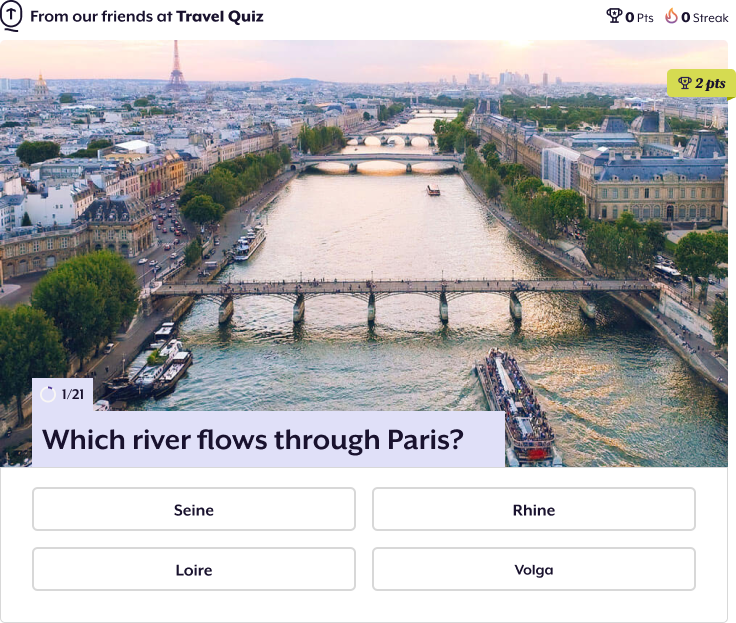Extraordinary office buildings push construction and design boundaries with their innovative appearance, groundbreaking technology, and, increasingly, their commitment to green credentials. While they have to be functional to serve the clients that pay the rent, these offices also place great store in aesthetics — making not only an impact on the surrounding cityscape but also a lasting impression on those who work in or visit them. Take a look at eight of the world’s most architecturally stunning office buildings.
F&F Tower – Panama City, Panama
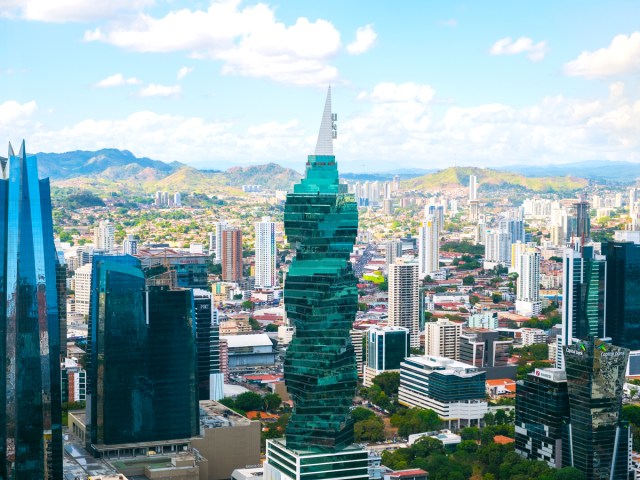
Designed by Pinzon Lozano and Associates, the spectacularly twisting F&F Tower (previously known as the Revolution Tower) stands more than 750 feet tall and boasts 52 stories of offices. Engineers managed to pull off its bold and unmistakable design concept by rotating each floor nine degrees from the floor below. The building topped out in 2011, and its distinctive spiral and emerald glass façade has made it a talking point ever since. Because of its unusual shape, the locals refer to it as El Tornillo (“The Screw”).
Leeza SOHO – Beijing, China
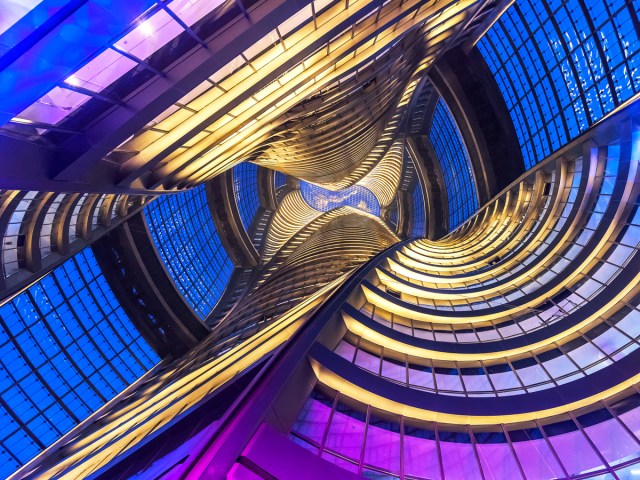
Zaha Hadid Architects are responsible for Leeza SOHO, which was unveiled in 2019 in Beijing’s Fengtai business district. The name of this delightful building is a play on its location, Lize Road. Undoubtedly, the 636-foot-high twisting atrium — the world’s tallest — is its most striking feature, flooding the interior with light. The structure entwines the two separate halves of the building, which are connected by four skybridges and a glass façade.
Lego Headquarters – Billund, Denmark
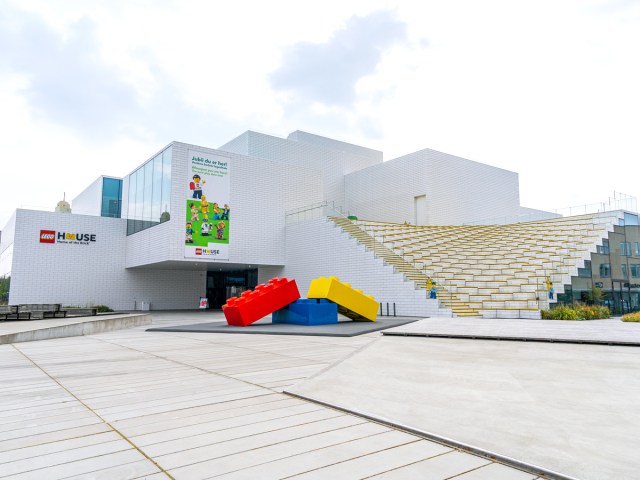
Designed by C.F. Møller Architects, the Lego Group headquarters opened in 2022. The toy brand is known by children all over the world for its brightly colored bricks, so, fittingly, the building incorporates many playful elements in its design.
The company’s long-held values of creativity and fun are at the heart of this Danish campus, a vibrant workspace where the families of employees are welcome. The prodigious use of yellow and architecture that, in places, references the building blocks and their circular studs are part of what makes the office building so iconic.
Flame Towers – Baku, Azerbaijan

The three buildings that are collectively known as the Flame Towers dominate the skyline of Baku, dwarfing the sandstone edifices of its walled old city. Fire symbolizes purity in Zoroastrianism, a religion whose origins here date back more than 3,000 years.
More recently, wealth generated from the oil and natural gas industry has transformed Baku’s economy and its architecture. It’s entirely fitting, therefore, that the shape of these skyscrapers, one of which houses offices, mimics a flame. Red, orange, and yellow LED lights illuminate the towers every evening to evoke the image of fire.
The Ring – Cupertino, California
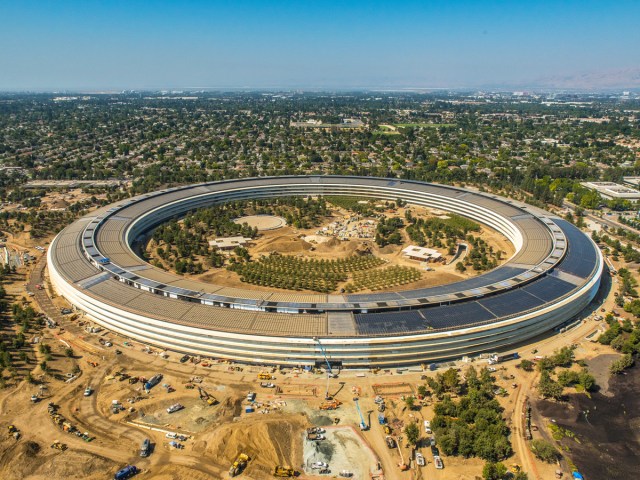
The centerpiece of Apple’s Cupertino campus might be only four stories tall, but the Ring definitely delivers the wow factor. Award-winning British architect Sir Norman Foster and his team also ensured that the building has impressive eco-credentials — enough to give it LEED Platinum certification.
Approximately 80% of its 175-acre area is devoted to green space, and more than 9,000 drought-tolerant trees were sourced and planted on site. Everything on the tech giant’s campus is powered by renewable energy, and recycled water is used throughout.
Aldar Headquarters Building – Abu Dhabi, UAE
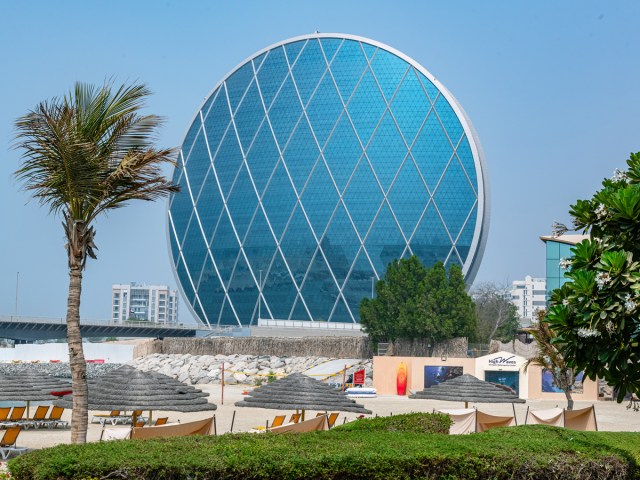
Futuristic design is commonplace in the Middle East, and the circular shape of the Aldar Headquarters in Abu Dhabi is a spectacular case in point. The concrete, glass, and steel structure is just shy of 400 feet tall and comprises 23 stories of office and retail space.
This exceptional waterfront building takes its inspiration from a pearl balanced on a sandy seashore. Two convex façades, sandwiched by a ring of glass, continue the analogy and evoke the form of a shell. The abundance of windows floods the interior with light, yet efficient cooling systems rise to the task of keeping the desert heat at bay.
Lloyd’s Building – London, U.K.
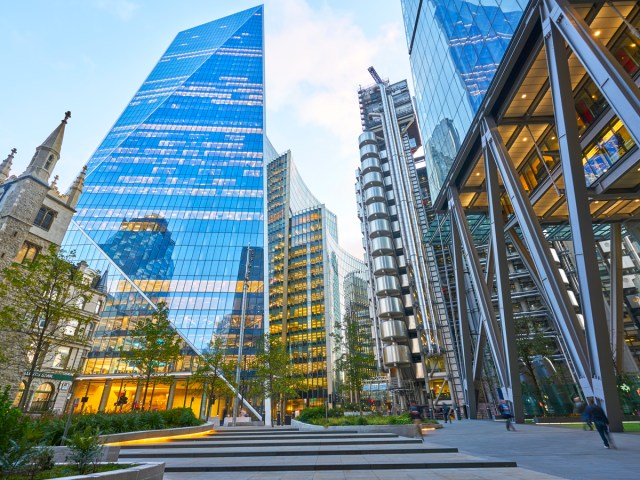
When Queen Elizabeth II opened the new Lloyd’s offices in 1986, the inside-out nature of the building at One Lime Street drew polarized opinions. Architect Richard Rogers’ design was radical, as it placed ducts and lifts in plain view on the building’s exterior, instead of tucking them out of sight where conventional wisdom said they belonged.
Some critics likened it to a coffee percolator, a motorcycle engine, or even an oil rig. However, over time, Londoners embraced the building, and in 2011 it was awarded Grade 1 listed status, a protection for exceptional buildings that was hitherto unheard of for one so recently built.
NORD/LB – Hanover, Germany
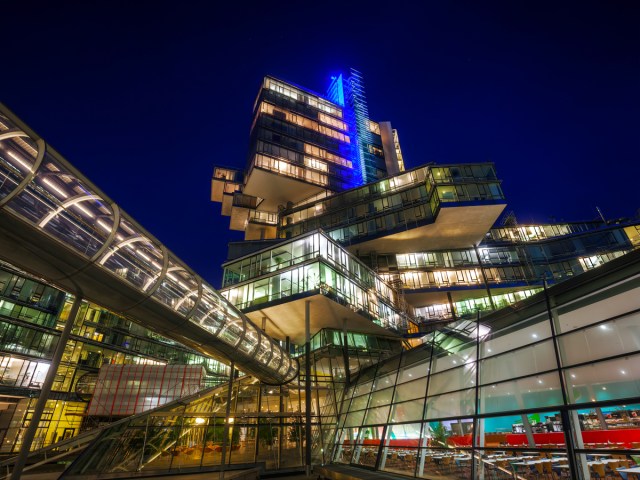
The fragmented, postmodern style of architecture known as deconstructivism started to appear in the 1980s. It might seem an incongruous choice for a German financial institution, but the Norddeutsche Landesbank (abbreviated NORD/LB) building in Hanover embraces the concept and gives it a stylish twist.
In a remarkable departure from the uniformity of the city’s skyline, this 17-story tower rises from a platform but is carved into separate blocks radiating at different angles. An abundance of cables, tubes, and columns help to add personality, making this a striking addition to Hanover’s architectural landscape.
More from our network
Daily Passport is part of Inbox Studio, which publishes content that uplifts, informs, and inspires.







